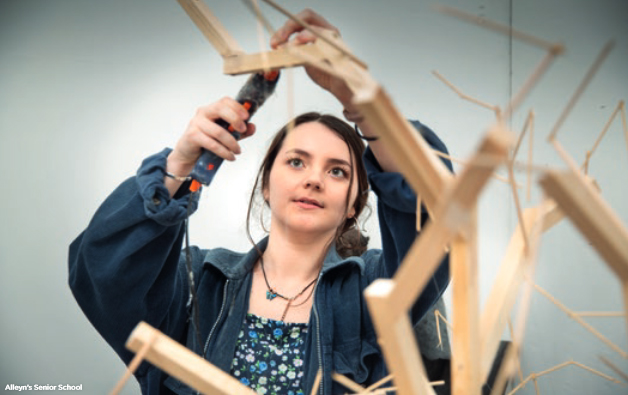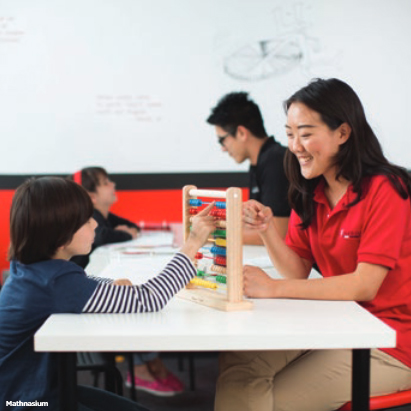Menu
Georgina Blaskey questions whether Common Entrance is still fit for purpose as a way of testing children and whether there is a better admissions procedure.
Love it or hate it, Common Entrance has been the pinnacle (and bane) of many a prep school child’s life since it was introduced in 1904. Comprising of a range of subjects, from compulsory English, Maths and Sciences to Latin, History, Geography, Religious Studies (now Theology, Philosophy and Religion, or TPR) and a modern language, for three and a half days in June of Year 8, over 20,000 children a year experience high levels of examination stress – as do a few parents and teachers for that matter. But with the rise in extensive pre-testing by senior schools, frequent unconditional offers, fears over young people’s mental health and a concern that the educational journey for many pupils is narrower than it could be, is Common Entrance still fit for purpose?

For years, prep school teachers and parents have been concerned that pupils are learning purely for exams. “It’s really important to look at how children interact with their peers, how they approach a problem collaboratively and how creative they can be in their thinking rather than how well they do in a test for which they might have been heavily tutored and prepared,” says Whitgift’s Kate Goldberg, Director of Learning and Innovation.
Newton Prep Headmistress Alison Fleming compared the testing process to “fattening up geese to make foie gras where knowledge is rammed down their throats”. The fear is that ‘teaching to the test’ stops children falling in love with subjects and discovering their passion. Echoing this are senior schools which find themselves increasingly fed up with 13-year-olds who are coached to pass an exam, but have little enthusiasm for an education beyond the need to achieve the right grade.
In a joint announcement last year, St Paul’s Boys’ School and Westminster (both senior schools) said scrapping the 13+ Common Entrance exams in favour of the pre-tests would reduce “the sustained pressure upon pupils, parents and teachers between National Curriculum Year 5 and Year 8”. Mark Bailey, High Master of St Paul’s School, explained: “Not having to take the [Common Entrance] examination will relieve stress and create more time for the school. We strongly believe that this move will provide prep schools with the freedom to develop their curriculum in ways that are rigorous but inspiring for the pupils and also reduce unnecessary burdens and testing for parents and pupils.” Wellington has the same policy. Julian Thomas, Master of Wellington College, wants the admissions procedure of his school to replicate education there. “We have transformed our assessment days to reflect the educational experience we aim to provide: candidates are invited to a day comprising a values-based interview, group discussions that mirror the way in which we teach, and activities that test creativity, critical thinking and problem-solving skills.” He hopes that abandoning CE would give “prep schools more flexibility to design their own courses, and to develop the skills for the future, without spending months on exam preparation.”

Newton Prep have just completed the first year of the Newton Diploma, which replaces History, Geography and PPR (CE humanities subjects) with a thematic, enquiry-based approach. Headmistress Alison Fleming wrote to all senior schools to which the prep school sends children before the switch and received total support and encouragement for the move. Thomas’s Clapham has a similar plan underway. Headmaster Philip Ward explains their rationale. “Our History and RE&P Subject Leaders were keen to move away from the harness of Common Entrance because they strongly believed that the curriculum they could give our Year 7 and 8 pupils would be rigorous, dynamic and relevant to the needs and interests of our pupils. This has certainly been true on all accounts and there are far more opportunities for pupils to use their research and soft skills within lessons. The curriculum has been tailored to an enquiry approach and we are confident that pupils will gain a secure knowledge base as well as skills we believe they need in the future, such as critical thinking, deep essay writing and collaboration.”
Prep schools that haven’t made any changes are keeping abreast of the situation. While neither Broomwood Hall nor Northcote Lodge have any current plans to drop CE and the curricula are still geared towards preparing pupils for it at 13+, the school is keeping a watchful eye on the debate and any future developments. Broomwood Hall’s Director of Studies, Louisa McCafferty adds: “A potential move away from CE would allow schools the chance to develop their own syllabus and means of assessment which still embeds the necessary skills that pupils of that age range should be developing. However, schools would have more opportunity to ensure that the learning and related assessments were relevant, purposeful and age appropriate.”

For senior schools that have not explicitly declared they will drop CE, many offer unconditional places where CE examination results are used as a method of setting new pupils and places have already been guaranteed, such as Cranleigh and Ardingly. “At Ardingly College, we run the ISEB Year 6 entrance examination process,” explains Pamela Bower-Nye, Director of Marketing and Admissions. “If the results meet our required standard and they pass the 13+ interview with the headmaster, this will secure them a place in senior school. The CE is used for setting purposes. Should a child not sit CE, we would use all data that we have, including school reports and references, to inform our knowledge for setting purposes.”
A change of admission procedure is trickling down to London day schools too. Dulwich College has introduced changes to the Year 9 admissions procedure which will affect 13+ entry in 2022 and beyond. Applicants will sit the ISEB Common Pre-Test in October/ November 2019 at its prep school, with shortlisted boys invited for interview in December of that year. “We are looking to fill approximately 75 per cent of our Year 9 places through this process,” explains Sarah Betts, Registrar at Dulwich College. “The remaining places will be available in the January of Year 8 by competitive examination and will follow the process we currently use. Boys who are not offered a deferred 13+ place in Year 6 may apply again in Year 8.”
Alleyn’s has recently changed its admission procedure for next September, which will have an impact on those who were hoping to try for 13+ entry in 2020. “As a result of continued high application and acceptance rates at 11+, we have concluded that we are unable to offer a formal 13+ entry into Year 9 at Alleyn’s from September 2020 and until further notice,” says Headmaster Dr Gary Savage. “Whilst 13+ has always been a relatively modest entry point, we recognise that the suspension will disappoint some parents, but can assure them that this decision has not been taken lightly. We shall definitely be keeping the matter under review.”With so many new methods of testing being trialled, adjustments to timings to testing and the number of places being released year on year, it’s crucial to check with each registrar at any school you’re interested in to keep up to date with policy changes.